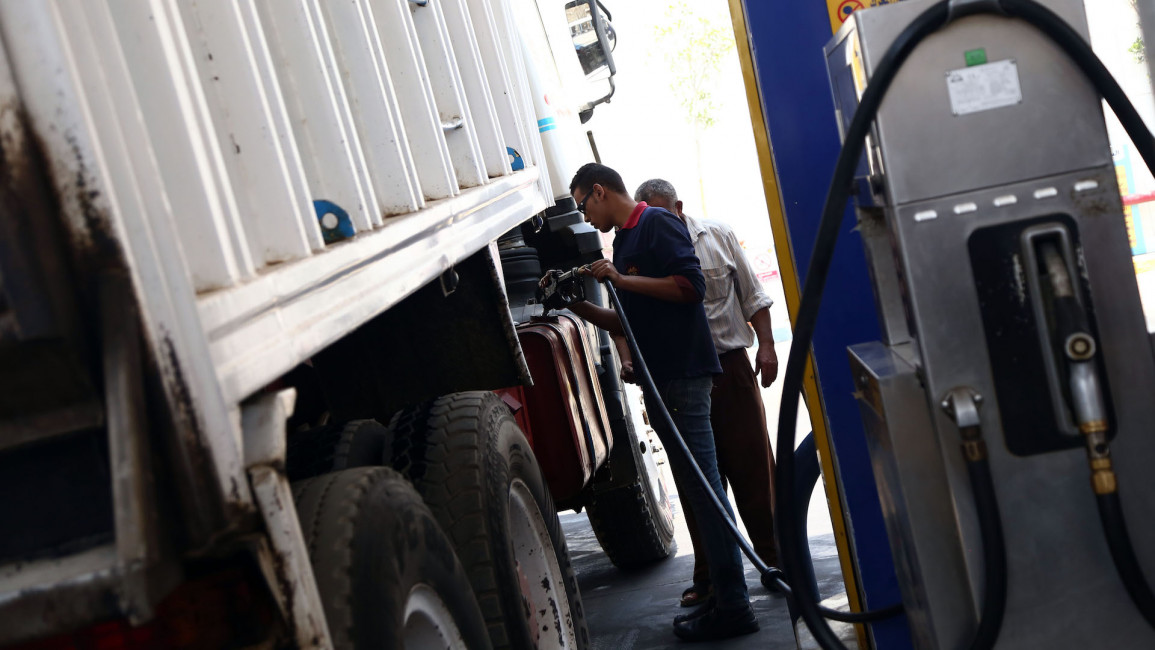Egypt raises fuel prices for second time in less than a year, triggering angry reactions
Egypt has raised the prices of fuel by up more than a half, the second such increase since the local currency was floated seven months ago.
Thursday's announced on official news agency MENA that fuel prices would rise by 55 percent comes as part of broader economic reforms taken to meet demands by the International Monetary Fund for a $12 billion bailout loan.
The decision came into effect immediately, coinciding with the fourth anniversary of the June 30 mass protests that led to the army's toppling of Egypt's first democratically elected President Mohamed Morsi, after a year in power.
Raising fuel prices is bound to boost already surging inflation and fan popular discontent over the austerity policies launched by President Abdel Fattah al-Sisi.
The New Arab's correspondent in Egypt saw angry reactions, with rows erupting as the price hike came into effect.
"I regret voting for him. I had hopes he would bring about good," said local man Fawzi Abdul-Rahman outside a petrol station in Cairo, in reference to Sisi.
A source close to decision-making circles said Egyptian security agencies have warned the country's leadership against the move, fearing a violent popular backlash.
"The security agencies have submitted reports to the president recommending a halt to the fuel price hikes because the Egyptian street will not tolerate them, especially amid ongoing anger over the surrender of the islands of Tiran and Sanafir [to Saudi Arabia]," the source told The New Arab.
Agencies contributed to this report



